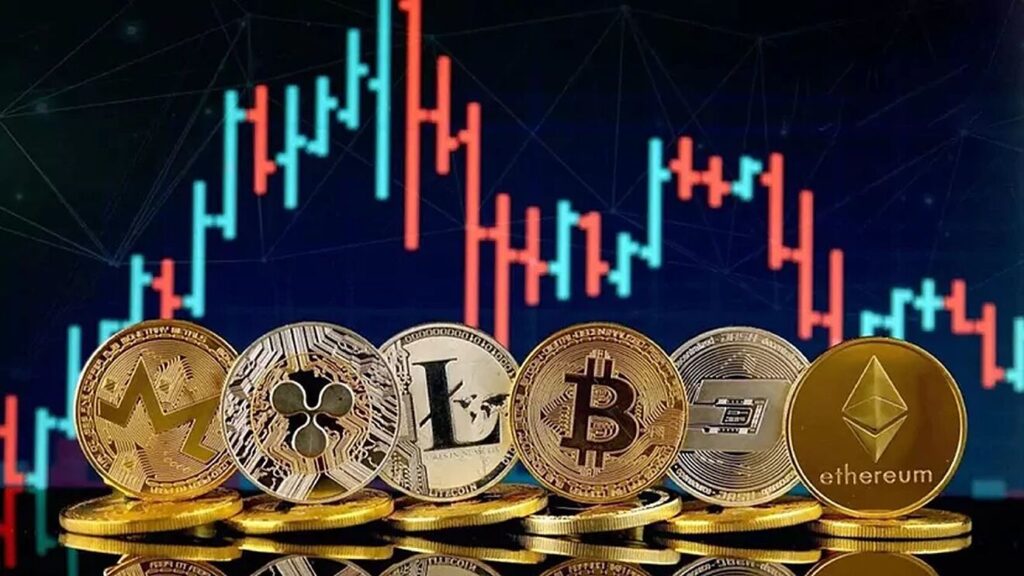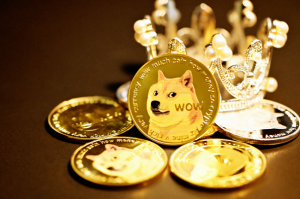Uphold App – an Easy Secure Platrorm for Safe Altcoin Trading Worldwide
 Cryptocurrency exchanges are vital to the ecosystem. They provide a place for users to buy, sell, and trade digital assets in a secure and efficient manner. However, not all exchanges are created equal. In this blog post, we will explore the different types of exchanges and how they can impact the altcoins trading experience. We will also provide some tips on how to choose a trustworthy exchange and how to avoid getting scammed.
Cryptocurrency exchanges are vital to the ecosystem. They provide a place for users to buy, sell, and trade digital assets in a secure and efficient manner. However, not all exchanges are created equal. In this blog post, we will explore the different types of exchanges and how they can impact the altcoins trading experience. We will also provide some tips on how to choose a trustworthy exchange and how to avoid getting scammed.
Altcoins 101
In the world of cryptocurrency, there are many different types of coins and tokens. While Bitcoin is the most well-known and widely accepted form of cryptocurrency, there are many other types of altcoins that are also gaining in popularity.
What are altcoins? Altcoins are simply alternative cryptocurrencies to Bitcoin. They are digital assets that use cryptography to secure their transactions and to control the creation of new units. Altcoins can be used to buy goods and services, or can be traded on cryptocurrency exchanges just like Bitcoin.
There are currently over 5,000 different altcoins available on the market, with new ones being created all the time. While some of these may not have much value or utility, others have become quite popular and have seen their prices rise significantly. Some of the more well-known altcoins include Ethereum, Litecoin, Ripple, and Monero.
Why trade altcoins? For many traders, altcoins offer a number of advantages over Bitcoin. These can include faster transaction speeds, lower fees, greater privacy, and more innovative features. As the cryptocurrency market continues to evolve, we expect that altcoins will only become more popular.

How to trade altcoins? If you’re interested in trading altcoins, Uphold is a great option. They offer a wide range of altcoin pairs that can be traded against USD, EUR, GBP, CAD, and more. Plus, their easy-to-use platform makes it simple to buy
What is an Altcoin?
An altcoin is any digital currency that is not Bitcoin. The term “altcoin” is short for “alternative coin”. Altcoins are a decentralized form of currency that uses blockchain technology to secure and verify transactions. Altcoins are often created to improve upon the shortcomings of Bitcoin or to fill a specific niche in the cryptocurrency market. There are hundreds of altcoins currently in existence, with more being created every day.
While Bitcoin remains the most well-known and widely-used cryptocurrency, altcoins offer traders and investors a much wider range of options when it comes to choosing a digital currency to invest in. Altcoins can be traded on many popular cryptocurrency exchanges, such as Binance, KuCoin, and OKEx.
What is Bitcoin?
B itcoin is a digital or virtual curr
itcoin is a digital or virtual curr
ency that uses peer-to-peer technology to facilitate instant payments. Transactions are verified by network nodes through cryptography and recorded in a public distributed ledger called a blockchain. Bitcoin was invented by an unknown person or group of people under the name Satoshi Nakamoto and released as open-source software in 2009.
Bitcoins are created as a reward for a process known as mining. They can be exchanged for other currencies, products, and services. As of February 2015, over 100,000 merchants and vendors accepted bitcoin as payment.
The Different Types of Altcoins
When it comes to altcoins, there are many different types that you can trade. Here is a list of the different types of altcoins:
1. Bitcoin Alternatives: These are altcoins that offer a different vision than Bitcoin. Some examples include Litecoin, Dogecoin, and Ethereum.
2. Bitcoin Clones: These are altcoins that are clones of Bitcoin with slight changes. An example would be Namecoin.

3. Scrypt Coins: These are altcoins that use the Scrypt algorithm instead of SHA-256. Examples include Litecoin and Dogecoin.
4. X11 Coins: These are altcoins that use the X11 algorithm. An example would be Dash.
5. Proof of Stake Coins: These are altcoins that use Proof of Stake instead of Proof of Work like Bitcoin does. An example would be Peercoin.
Pros and Cons of Trading Altcoins

There are a number of advantages and disadvantages to trading altcoins, and these should be considered before making any decisions.
On the plus side, altcoins can be a good way to diversify your investment portfolio and can potentially offer higher returns than more traditional investments. They can also be traded on a number of different exchanges, giving you flexibility in how you trade them.
However, there are also some risks associated with trading altcoins. Many of these coins are relatively new and untested, so their long-term viability is uncertain. They can also be very volatile, meaning that prices can fluctuate dramatically and you could end up losing money if you’re not careful.
Before making any decisions, it’s important to weigh up the pros and cons of trading altcoins carefully to ensure that it’s right for you.
Conclusion
Altcoins are a great way to diversify your portfolio and can offer high returns, but they are also very volatile. If you’re thinking of trading altcoins, it’s important to do your research and only trade with money you can afford to lose. Upholding the home for altcoins trading is about being responsible and only investing what you can afford to lose. With that said, we hope this article has given you some insights into altcoin trading and how to be successful at it.
Todays Featured Product:
Buy, exchange and grow your crypto securely with a Ledger hardware wallet, combined with the Ledger Live app. It’s never been easier to keep your crypto safe and accessible. Buy direct from Ledger.com and get todays Special Offers Here.




